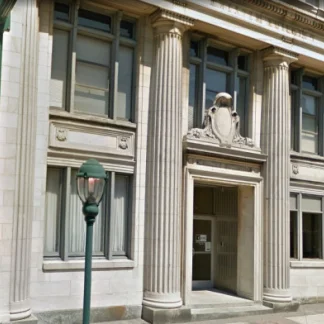SOAR Corporation
SOAR Corporation stands as a reputable substance abuse treatment center in Chest...
The Empowerment Resurrection Center provides an outpatient rehabilitation center for adults in need for substance abuse treatment. Services are based on the 12-step program. The Empowerment Resurrection Center is located at Chester, Pennsylvania.
Educational group are also provided for DUI clients.
Group counseling sessions allow individuals to support each other in their recovery efforts and provide the opportunity to relate insight and ideas about shared problems. Additionally, they provide family sessions.
Contact us for more information: (610) 447-1600

Connect with The Empowerment Resurrection Center by calling their admissions team directly.
(610) 447-1600 Website Get DirectionsResearch clearly demonstrates that recovery is far more successful and sustainable when loved ones like family members participate in rehab and substance abuse treatment. Genetic factors may be at play when it comes to drug and alcohol addiction, as well as mental health issues. Family dynamics often play a critical role in addiction triggers, and if properly educated, family members can be a strong source of support when it comes to rehabilitation.
Group therapy is any therapeutic work that happens in a group (not one-on-one). There are a number of different group therapy modalities, including support groups, experiential therapy, psycho-education, and more. Group therapy involves treatment as well as processing interaction between group members.
Life skills trainings involve all the skills a person must have in order to function successfully in the world. These include time management, career guidance, money management, and effective communication. Truly successful addiction recovery is based on the ability to not only live substance-free, but to thrive. Life skills teaches the practical necessities of functioning in society, which sets clients up for success in life, and therefore sobriety.
Group therapy is any therapeutic work that happens in a group (not one-on-one). There are a number of different group therapy modalities, including support groups, experiential therapy, psycho-education, and more. Group therapy involves treatment as well as processing interaction between group members.
Life skills trainings involve all the skills a person must have in order to function successfully in the world. These include time management, career guidance, money management, and effective communication. Truly successful addiction recovery is based on the ability to not only live substance-free, but to thrive. Life skills teaches the practical necessities of functioning in society, which sets clients up for success in life, and therefore sobriety.
Life skills trainings involve all the skills a person must have in order to function successfully in the world. These include time management, career guidance, money management, and effective communication. Truly successful addiction recovery is based on the ability to not only live substance-free, but to thrive. Life skills teaches the practical necessities of functioning in society, which sets clients up for success in life, and therefore sobriety.
SOAR Corporation stands as a reputable substance abuse treatment center in Chest...
Coatesville VA Medical Center - Springfield OP Clinic offers a patient-centered ...
Focus Psychological Associates offers outpatient treatment for individuals with ...
Horizon House is a private rehab located in Swarthmore, Pennsylvania. Horizon Ho...